The weather got cold and so came sinus infections, colds, cancellations due to upper respiratory illnesses. The immune system is the body’s defense mechanism, responsible for protecting us from infections, viruses, and harmful bacteria. Maintaining a strong and balanced immune system is crucial for overall health, particularly today where stress, environmental toxins, and poor lifestyle habits can compromise immune function. Acupuncture, along with herbs offer a natural, holistic alternative that has been used for centuries. Here’s how it works;
THE ROLE OF THE IMMUNE SYSTEM AND IMMUNITY IN TCM
In Traditional Chinese Medicine, the immune system is linked to Wei Qi, or "defensive energy." Wei Qi is responsible for protecting the body from external pathogens like viruses and bacteria. When Wei Qi is strong, the body can fend off illness and recover quickly from infections. When it's weak, the body becomes vulnerable to illness, fatigue, and chronic health problems. In TCM, a balanced flow of Qi throughout the body is key to maintaining a strong immune defense.
Specific acupoints are used to strengthen the immune system, clear blockages in energy flow, and improve overall vitality. Now is the time to come in for a good immune boost!
HOW ACUPUNCTURE BOOSTS THE IMMUNE SYSTEM
1. Stimulating the Production of Immune Cells
One of the primary ways acupuncture boosts the immune system is by stimulating the production and activity of white blood cells, which play a key role in the immune response. White blood cells, including lymphocytes and natural killer (NK) cells, are responsible for detecting and neutralizing foreign invaders such as viruses and bacteria.
Several studies have shown that acupuncture can enhance the activity of these immune cells. A 2017 study published in the journal Complementary Therapies in Medicine found that acupuncture increased NK cell activity, which plays a critical role in preventing viral infections and certain cancers. By boosting the function of immune cells, acupuncture enhances the body’s natural defense mechanisms.
2. Regulating Inflammation
Inflammation is a necessary immune response to injury or infection. However, chronic inflammation can weaken the immune system and contribute to various health problems, including autoimmune diseases and chronic infections. Acupuncture has been shown to regulate inflammatory processes by influencing the production of pro-inflammatory cytokines, such as interleukin-6 (IL-6) and tumor necrosis factor-alpha (TNF-α), while promoting the release of anti-inflammatory cytokines.
By reducing excessive inflammation, acupuncture helps maintain a balanced immune response and prevents the immune system from being overtaxed by chronic inflammatory conditions. This modulation of inflammation is particularly beneficial for individuals with autoimmune disorders, allergies, or chronic viral infections.
3. Balancing the Nervous System
The nervous system and the immune system are closely interconnected. Chronic stress, which activates the body's "fight or flight" response, weakens the immune system by suppressing immune cell activity and increasing inflammation. Acupuncture helps by stimulating the parasympathetic nervous system, also known as the "rest and digest" system, which calms the body and reduces the effects of stress.
This balancing of the nervous system allows the immune system to function more efficiently, reducing susceptibility to illness and helps you get a good night’s sleep which is essential for the immune system.
4. Improving Circulation and Lymphatic Flow
Acupuncture improves circulation by promoting better blood flow to various parts of the body, delivering oxygen and nutrients to tissues while removing waste products and toxins.
This improved circulation supports immune function by ensuring that white blood cells and other immune components reach affected areas more quickly and effectively. Additionally, acupuncture may stimulate the lymphatic system, which is crucial for draining toxins and waste from the body, further aiding in immune health.
5. Supporting Gut Health
Gut health plays a significant role in immune function. In fact, a large percentage of the immune system resides in the gut, where it helps protect the body from harmful pathogens. Acupuncture can aid in maintaining a healthy gut by promoting digestive function, reducing inflammation in the gastrointestinal tract, and balancing the gut microbiome.
CLINICAL EVIDENCE OF ACUPUNCTURE’S IMMUNE-BOOSTING BENEFITS
A research published in Evidence-Based Complementary and Alternative Medicine demonstrated that acupuncture increased immune cell activity in cancer patients, improving their ability to fight off infections. Another study in The Journal of Alternative and Complementary Medicine showed that acupuncture enhanced the immune response in patients with chronic viral infections, such as hepatitis C, by boosting natural killer cell activity. Additionally, a review published in the journal Autonomic Neuroscience suggested that acupuncture could regulate the immune system by influencing the autonomic nervous system, which controls immune responses. This suggests that acupuncture not only boosts immune cell activity but also helps maintain a balanced and coordinated immune response.
ACUPUNCTURE FOR PREVENTING ILLNESS AND MAINTAINING WELLNESS
Many people choose acupuncture as a preventive measure to keep their immune systems strong year-round. By receiving regular acupuncture treatments, individuals can help bolster their body’s natural defenses, reducing the likelihood of getting sick during cold and flu season. Acupuncture can also be used to shorten the duration and severity of illnesses when they do occur, by helping the body fight off infections more effectively.
In addition to acupuncture, I recommend herbal remedies, dietary changes, and lifestyle modifications to further support immune function. I swear by Yin Qiao San which is a way to build Wei Qi (defensive Qi) and stop a pathogen from entering the body.
Make sure to book your appointments ahead of time this upcoming cold and flu season.









